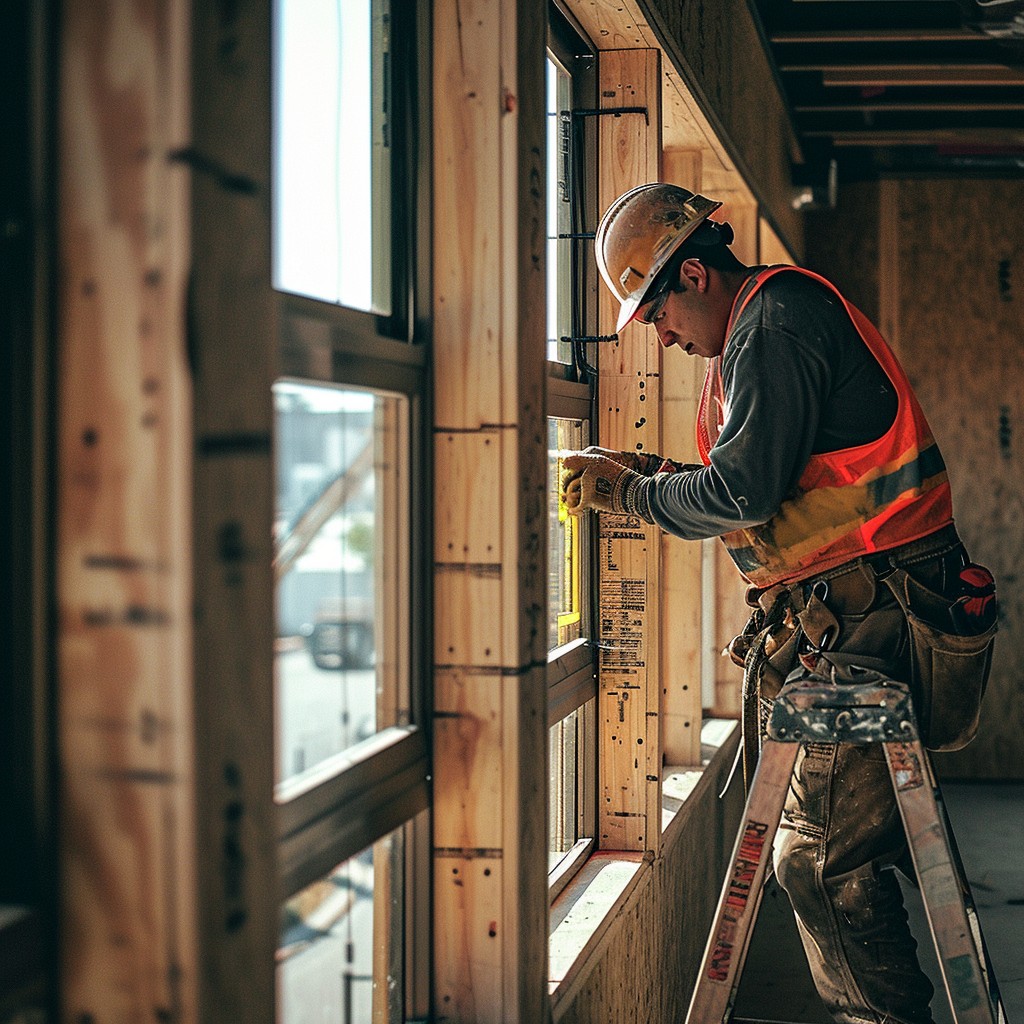Homeowners and contractors alike often find themselves grappling with the question: “What will window replacement cost estimation?” This query is not only vital but necessitates a meticulous consideration of several factors to ensure that the total budget remains within acceptable limits. Generally, window replacement costs range from $650 to $2,500 per window, heavily influenced by the type of window being installed. By understanding these influencing factors, one can save both time and money, and be better prepared to handle any unforeseen changes during the replacement process.
Importance of Accurate Cost Estimation
Precise cost estimation for window replacement is paramount before initiating any project. An unexpected increase in the price of materials can significantly escalate the overall cost. Additionally, various other elements can also contribute to the final expense. This comprehensive guide will elucidate the eight critical factors to consider when estimating window replacement costs.
Key Factors to Consider When Estimating Window Replacement Costs
Window Type and Size
The type and size of the window significantly impact the cost. Larger windows naturally cost more than smaller ones. For instance, comparing the cost of a sliding door to a double window, the latter will generally be more expensive. Thus, understanding the specific type and size of the window is crucial for accurate cost estimation.
Materials Used
Windows can be made from various materials, including vinyl, wood, fiberglass, and aluminum, each with its own set of characteristics and durability. Vinyl windows, for example, are typically less expensive than wooden ones. Additionally, the availability and demand for specific materials can influence their prices, affecting the overall cost.
Number of Windows
The total number of windows being replaced will directly affect the cost. Each window requires specific materials and labor, which vary based on the complexity of the work. Replacing windows in a single room will cost less than replacing all the windows in a house. Additionally, modern-style windows or custom designs may further increase the cost.
Labor Costs
Labor costs depend on the expertise required for the project. More complex installations necessitate hiring skilled labor, which comes at a higher price. Experienced installers charge more due to their expertise, and relying on skilled professionals is essential to avoid any mishaps during installation.
Market Conditions
The location of your property plays a significant role in determining window replacement costs. Local market conditions, such as supply and demand, competition, and labor costs, can affect the overall expense. For example, windows that are in high demand may cost more in certain areas.
Removal of Old Windows
Removing old windows is a substantial part of the replacement process. This task involves several steps, including removing the window frame, disposing of old materials, and preparing the area for the new installation. In some cases, old windows might be challenging to remove, necessitating additional costs.
Window Grids
Window grids come in various styles, each with its own price point. While most homeowners do not change window grids, opting for a replacement will increase the overall cost.
Energy Efficiency Features
Modern homeowners often prefer installing energy-efficient windows, such as double or triple-pane glass filled with argon gas and Low-E coatings. These windows help create a more comfortable indoor environment and lower energy bills, offering long-term savings despite the higher initial cost.
Additional Components to Consider
Permits and Inspections
Before beginning any window replacement project, securing the necessary permits and passing inspections is crucial. The cost of permits can vary by location and the scope of the project. Failure to obtain proper permits can result in fines and additional expenses down the line.
Hardware and Accessories
The choice of hardware and accessories, such as locks, handles, and screens, can also affect the overall cost. High-quality or custom hardware will increase the price but can add to the functionality and aesthetic appeal of the windows.
Repairs and Modifications
If the window frames or surrounding structures require repairs or modifications, this will add to the total cost. These repairs might include fixing water damage, addressing structural issues, or making adjustments to accommodate new window sizes or designs.
Warranty
Investing in a warranty can provide peace of mind and protect against future issues with the windows. However, this can also add to the initial cost. It’s important to weigh the benefits of a warranty against its cost to determine if it’s a worthwhile investment.
Travel and Transportation
Transportation fees for delivering windows and materials to your location can vary based on distance and logistics. Additionally, if you’re working with contractors from outside your local area, travel costs for the labor team might also be a factor.
Steps to Accurately Estimate Window Replacement Costs
Conduct a Thorough Assessment
Start by assessing the current condition of your windows and identifying the scope of the replacement project. Take note of the number, type, and size of windows that need replacing.
Research Materials and Suppliers
Investigate the different materials available and their costs. Compare prices from multiple suppliers to find the best deals without compromising on quality.
Get Multiple Quotes
Obtain quotes from several contractors to compare labor costs and services. Ensure that the quotes include all aspects of the job, including removal of old windows, installation of new ones, and any necessary repairs.
Factor in Additional Costs
Consider all additional components, such as permits, hardware, and transportation fees. Don’t overlook potential costs for repairs or modifications that may arise during the project.
Plan for Contingencies
Budget for unexpected expenses by setting aside a contingency fund. This will help you manage any unforeseen costs without derailing your budget.
Consult a Professional Estimator
For a more precise estimate, consider hiring a professional estimator. They can provide expert advice and ensure that all factors are accounted for, helping you avoid surprises.
Conclusion
Estimating the cost of window replacement involves considering a multitude of factors, from the type and size of the windows to the materials used and labor costs. By following the guidelines outlined in this comprehensive guide, homeowners and contractors can develop an accurate budget and avoid unexpected expenses. Investing in high-quality materials and skilled labor is crucial, as window replacements are not undertaken frequently. Thorough research and careful planning will ensure a successful window replacement project that enhances both the aesthetic appeal and energy efficiency of your home.

